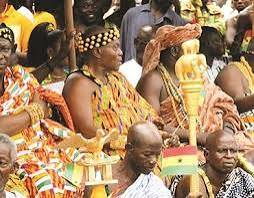Legal Recognition of Chiefs: Bridging Tradition and Democracy in Ghana’s Governance
In Ghana, traditional leadership, represented by chiefs, plays a vital role in cultural preservation, community development, and conflict resolution. However, the debate over the legal recognition of chiefs in the country’s democratic governance has been a subject of considerable discourse. While some view traditional authorities as essential pillars of society, others argue that their roles need reform to align with modern democratic principles.
Traditionally, chiefs have exercised influence in local governance, often acting as mediators between the government and their communities. Their position in the hierarchy of local leadership extends beyond ceremonial duties; they have historically been key players in law enforcement, land management, and social affairs. Despite this, the legal framework in Ghana has not fully incorporated chiefs into the formal governance structures.
The 1992 Constitution of Ghana made strides in recognizing the relevance of traditional authorities by establishing a National House of Chiefs, which advises the government on issues affecting traditional areas. However, there is an ongoing debate about how to formally integrate these chiefs into the legal and administrative systems of the state. Some argue that traditional leadership is incompatible with democratic values, as chiefs are often unelected, hereditary leaders who may not reflect the will of the people.
Proponents of legal reform argue that chiefs should be given more influence in the decision-making processes of the state, particularly in rural areas where they still hold significant sway. They suggest that reforms could include giving chiefs a more active role in local governance, such as advisory or even decision-making capacities within local government councils. Others believe that strengthening the relationship between chiefs and elected representatives would help to bridge the gap between traditional and modern governance systems, ensuring that the interests of the local populace are better served.
However, critics caution that any changes should respect the diverse roles that chiefs play in their communities while avoiding the risk of political manipulation. The challenge, therefore, lies in finding a balance that honors Ghana’s rich cultural heritage while promoting democratic values of accountability, transparency, and inclusivity.
Ultimately, the legal recognition of chiefs is an evolving issue. As Ghana continues to strengthen its democratic framework, the role of traditional leadership must be carefully considered to ensure it complements the country’s governance structure rather than hindering it.


